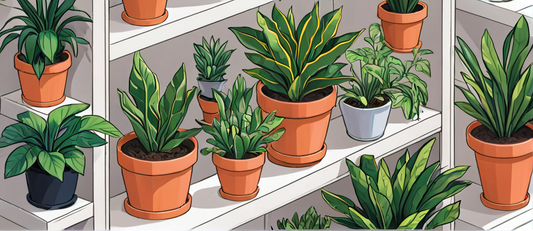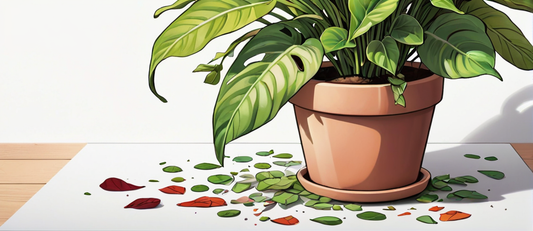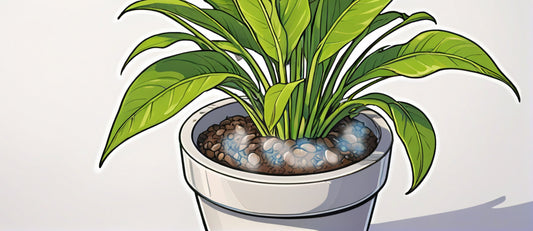

How do I care for Venus Fly Traps and other carnivorous indoor plants?
Indoor Plant Care | Plant Specific Care
Quick AnswerFancy adding some truly wild houseplants to your collection? Carnivorous plants are like something out of a sci-fi film! Think Venus fly traps... those snappy ones! These amazing plants have turned into insect-munchers to survive in places where the soil's a bit rubbish. To keep them thriving indoors, it's all about sunshine, special soil that's NOT rich, and pure rainwater (no tap water for these divas!). Keep things nice and humid, give them a wintertime snooze, and they'll be the talk of your plant pals!
Imagine a plant that eats bugs for breakfast. No, seriously! Carnivorous plants like the iconic Venus Fly Trap have figured out how to make a living in places with terrible soil. Instead of getting nutrients the usual way, they've got traps to catch and digest insects. Mind = blown, right? Here at Houseplant.co.uk, you'll find a fantastic selection of these bizarre beauties, ready to add a touch of the wild to your indoor jungle – minus the creepy-crawlies you don't want.
Caring for Your Carnivore (it's easier than you think!)
- Sunshine is Life: Most carnivorous plants need TONS of direct sunlight to keep their traps strong and colourful. Aim for 6+ hours per day in a south-facing window. Plants getting pale and weak? Consider a grow light!
- Soil Matters (and It's Not What You Think): Normal potting soil is a death sentence for carnivores. They need low-nutrient, specialised mixes, or you can mix equal parts sphagnum moss and perlite or sand. The key is replicating the poor soils they naturally grow in.
- Watering: Fussy, But Doable! Tap water is full of minerals that can harm these sensitive plants. Use distilled, reverse osmosis, or rainwater only. Keep the soil consistently damp, but never let it get waterlogged. The best method is to sit the pot in a tray of water and let it soak up what it needs from the bottom. Bonus: no soggy leaves, which can lead to mould.
- Tropical Vibes: Most carnivorous plants crave humidity. To keep them happy, try pebble trays under pots, a nearby humidifier, or regular misting of the air around them (avoiding the actual traps!).
- Let Them Do Their Thing! Resist the urge to feed your Venus Fly Trap hot dogs – they've evolved to catch their own dinner. If you MUST give them a treat, stick to tiny insects like fruit flies. Too much food stresses them out and can actually damage their traps.
- Winter Isn't the End: Many carnivorous plants need a winter dormancy period to stay healthy long-term. They might look completely dead, but don't panic – they're just storing energy for next year's growth spurt. Cut back on water and give them a few months in a cool place (2-10°C is ideal) before slowly increasing water and warmth in the spring.
Common Problems (With Easy Fixes)
- Traps not closing? This means they're not getting enough energy. Check for good light and proper soil moisture. If all's ok, let them catch a bug or two to perk back up.
- Brown or black leaves? Often a sign of overwatering, soggy roots, or using tap water. Switch to the right water, let the soil dry slightly, and make sure that pot has drainage!
- Pesky Bugs: While great at catching insects, carnivorous plants themselves can fall prey to pests like aphids. Check your plant regularly, and blast away any bugs with a spray of distilled water or a bit of neem oil for stubborn infestations.
We're Your Carnivore Plant Experts!
At Houseplant.co.uk, we're obsessed with finding the healthiest, most interesting carnivorous plants out there. Our packaging is designed to keep them safe in transit, and our fast shipping gets them into your hands quickly.
With just a little know-how, you'll be amazed at how easy – and weirdly rewarding! – it is to grow these stunning plants. The Houseplant.co.uk team is always here to support your carnivorous plant journey!



